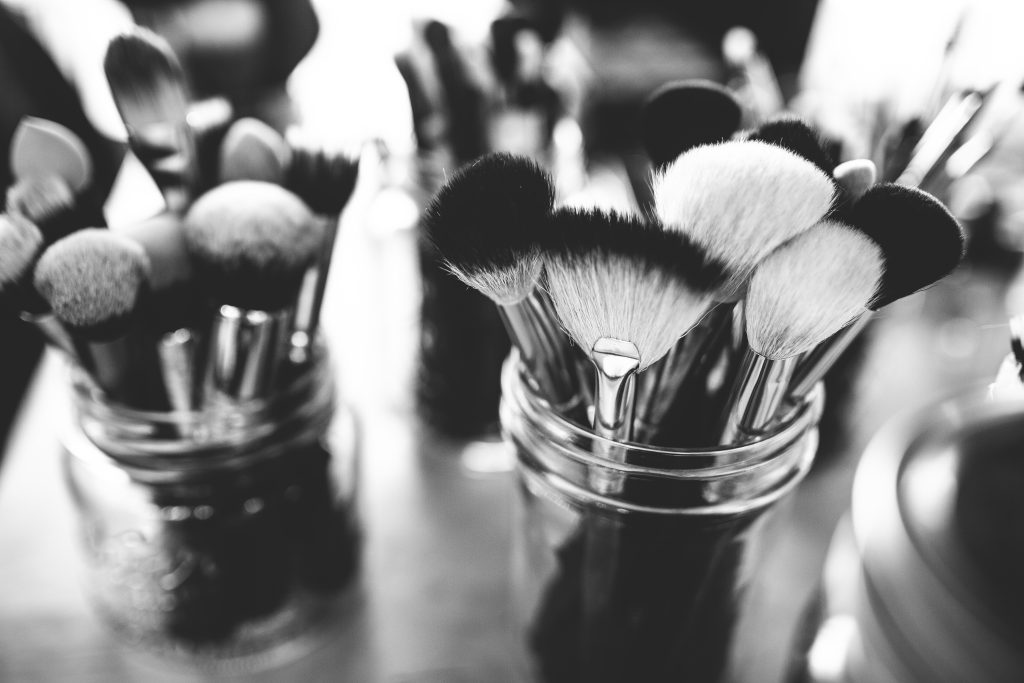
We all have one, a bare face I mean. At least we all did first thing this morning, unless you were a little lazy with the makeup wipes and instead prayed to the Garnier gods to rain down drops of micellar water (no I don’t really know what those words mean either) and delicately melt your foundation off as you sleep. Wishful thinking of course, and inevitably you will wake up contemplating why oh why you bothered applying it in the first place. A bit of a deep topic to delve into before your first spoon of cereal, so you repeat yesterday and reapply that foundation before getting on with your day.
But assuming you’re reading this post-breakfast, we’ll dive in. Why do so many women, and some men, not go bare-faced and wear makeup instead? For many it is a fashion statement, another way to express yourself, or even a carefully-practised art form where your naked face is the canvas. And this is great for the people who CHOOSE to wear it, or who pursue it as a career path. But the concern should lie with those who feel they HAVE to wear it, that how they look naturally is not enough. Alicia Keys is the latest in a line of celebrities who are going ‘bare-faced’ and Adele recently posted images of herself without her usual winged eyeliner, having been previously vocal about the narrow beauty standards set by the industry she is in. These pictures shouldn’t be shocking, after all we are all aware what a spot looks like and that Taylor Swift was not born with bright red lips. Yet I caught myself looking at such pictures and thinking ‘how brave she is’ and how I would never have the confidence to do that.
And there we have the real issue. Not that nobody should wear makeup ever, because in fact it can be liberating for those troubled by self-esteem issues. I embrace concealer for the two maroon crescents under my eye balls and relish in being able to pretend I have symmetrical eyebrows and even skin, because of the common fear that how my face looks when I wake up isn’t enough. But it should be.
For people who don’t apply makeup and have never felt the need to, it may be easy to respond ‘don’t wear it then’ which sounds simple enough. However, the temptation to overcome body insecurities with a quick layer of foundation often overrules the need to tackle lack of self-confidence at the source, especially when mornings are normally taken up by over-sleeping, finding matching shoes and picking toast crumbs out of your hair. And it is the underlying universal body issues that are the problem, with more children than ever reporting unhappiness with their appearance, especially young girls where 34% of 10-15 year olds surveyed reported self-esteem issues relating to how they look (Good Childhood Report, 2016).
Makeup itself isn’t dangerous or the problem, but how a lipstick bullet is used by some media outlets, fashion industries and people themselves as a weapon against ‘imperfection’ or, God-forbid, how humans naturally look. Lack of mental health support and education in schools is fuelling problems further amongst all genders and identities, which could lead to more serious conditions later on. Makeup should be a choice available to anyone who wants it and free of stereotypes, gender boundaries, or assumptions about your sexuality, just like how you dress or what music you listen to. It is beautiful, but so is your naked face, and shouldn’t be a mask but an extension of your style and personality, as it already is for some. ‘Bare-faced beauty’ isn’t brave or daring, it is just beauty and perhaps should be the most valued beauty of all.
